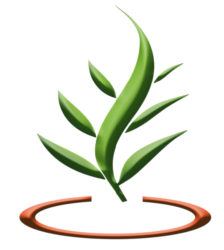Colon Cleanse
Colon Cleanse
Conditions resolved: irritable bowel syndrome and peptic ulcers, allergies and skin conditions
DIRECTIONS: Drink the entire bottle of Dr. J’s Colon Cleanse first thing in the morning on an empty stomach. After 1 hour eat all 1½ cups of pitted prunes (Sun-maid brand, California pitted prunes come in a around 16 oz purple cardboard canister). Soak prunes in bowl of room temperature water for 1 minute. Wash and rinse prunes well and strain. 15 – 30 mins after eating the prunes drink a glass (8 oz) of hot water. Caution: don’t burn your mouth. Do not heat water by microwaving. Sip water slowly like a tea. Drink 3-4 more glasses of hot water in the next hour. You may wait 5-15 mins between each glass if needed. Bowel movement will start in about ½ -1 hour or sometimes 2 but no later. Caution: you will have explosive diarrhea. First 2-3 bowel movement will be of normal beige color. 4-6 light brown color. 7-8 dark brown or black (this is important part). 9-10 clear to watery (when this happen or if you just urinate when you try to go, this means you are finished with the colon cleanse. This means you are as clean as a whistle. You may stop drinking warm water after 8-10 bowel movements. Remember to drink 1-2 glasses of hot to warm water after each bowel movement to maintain flow. Allow 6-8 of hours for a complete cleanse. Drink freshly made juice from fruits or vegetables without the pulp for the rest of the day. You must drink 8-14 glasses of water in total by the end of the day to keep well hydrated. Read full instructions at www.StayHealthyMD.com INGREDIENTS: wheat germ, black seed, castor oil, linseed oil, orange and other key essential oils
Benefits: Dr. J’s colon cleanse cleans out your lower GI. Impacted stool is the underlined cause of many health issues. Stool that doesn’t pass through the intestinal system completely can become dry and hard and lodge in the colon. This is called fecal impaction of the colon. When fecal impaction occurs, your colon won’t be able to remove the feces from the body using its normal contraction process. Diverticulosis occurs when small, bulging pouches (diverticula) develop in your digestive tract. Many times these pouches become inflamed or bacteria gather in them and cause an infection, the condition is known as diverticulitis. The most common organisms cultured include anaerobes, such as Bacteroides fragilis, and gram negatives, such as Escherichia coli. Common signs include: Bloating, gas, cramping, pain in your lower abdomen, constipation or diarrhea.
